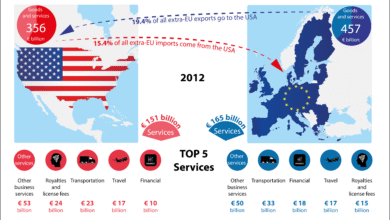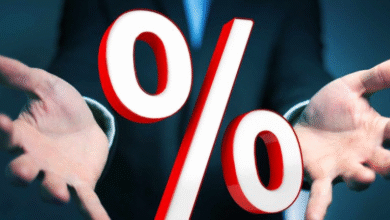Consumer Sentiment Drops Amid Growing Inflation Fears

Consumer sentiment is taking a notable hit as inflation fears escalate, according to a recent University of Michigan survey. The survey, a barometer of consumer attitudes, revealed a significant drop to a reading of 57.0 for March, marking an 11.9% decline since February and a staggering 28.2% decrease compared to the previous year. This downturn reflects growing concerns about the economic outlook, particularly the anticipated rise in inflation rates, which are expected to hover around 5% over the next year. As a result, consumers’ expectations have soured, signaling a cautious approach to spending amidst economic uncertainties, which has been felt across various demographics. Furthermore, this pessimistic sentiment has influenced market performance, with significant drops in the Dow Jones index following the survey’s release.
As public outlook shifts, consumer confidence is increasingly impacted by concerns of rising prices and economic instability. Recent data showcases a palpable worry regarding personal financial conditions, which have been accentuated by inflationary pressures reported in the University of Michigan’s analytics. This alters not only current spending habits but also future economic predictions as consumers reshape their expectations. Market reactions reflect this sentiment, highlighting a collective trepidation that extends from individual households to broader economic forums. Analyzing consumer attitudes in this light reveals deeper insights into economic trends and potential shifts in market dynamics.
Understanding Consumer Sentiment Amid Inflation Fears
Consumer sentiment has taken a notable hit as inflation fears have become a significant concern for households across America. The University of Michigan’s Survey of Consumers reported a dramatic drop in consumer sentiment, registering a reading of 57.0, marking an 11.9% decrease from February and a staggering 28.2% decrease compared to the same timeframe last year. This decline highlights a growing anxiety surrounding the economic outlook, with consumers expressing heightened concerns over their purchasing power and financial well-being.
The downturn in sentiment is reinforced by the fact that expectations for inflation over the next year have risen to 5%, up from previous estimates. Such inflationary trends affect not only consumer psychology but also spending habits, as individuals are likely to cut back on discretionary purchases in anticipation of higher prices in the near future. Economists are quick to note that this erosion of consumer confidence can lead to a cycle of reduced spending, further exacerbating economic slowdowns.
The Impact of Economic Indicators on Consumer Expectations
The recent University of Michigan survey underscores the strong correlation between key economic indicators and consumer expectations. The survey’s index measuring consumers’ outlook for the future fell to 52.6, a drop of 17.8% from the previous month, reflecting intensified fears about inflation and job security. Such downward shifts typically foreshadow cautious consumer behavior and can result in decreased investment in the stock market, as seen with the Dow Jones Industrial Average’s significant drop following the survey results.
Moreover, with inflation expectations rising, consumers are facing not just immediate financial pressures but long-term uncertainties about their economic stability. This heightened sensitivity to economic changes can lead consumers to become more risk-averse, further impacting sectors reliant on consumer spending. The feedback loop between inflationary pressures and decreased consumer sentiment could continue to influence the economic landscape unless there are positive changes in inflation rates or employment figures.
Inflationary Pressures and Economic Policy Developments
Inflationary pressures are re-shaping the economic landscape, prompting significant reactions from both consumers and policymakers. The current financial climate, characterized by rising inflation expectations and fears linked to economic policy—especially President Trump’s tariff plans—has created a precarious environment. Many economists believe that these tariffs may exacerbate inflation further, which could lead to a restrained approach by the Federal Reserve regarding interest rate cuts.
As inflation fears grow, consumers are increasingly worried about how these changes will impact their daily lives. With rising costs of goods and services, spending habits are shifting, and consumers are expressing a desire for more stability in economic policies. It remains to be seen how the Federal Reserve will respond to these inflation indicators and whether there will be any lasting relief for consumers grappling with uncertainty in their economic outlook.
Market Reactions to Consumer Sentiment Surveys
The stock market often reacts sharply to changes in consumer sentiment, as evidenced by the Dow Jones Industrial Average’s significant decline following the release of the University of Michigan consumer survey. As consumer sentiment deteriorates, reflecting fears about inflation and the economic outlook, investors may become hesitant, leading to a sell-off in equities. This response illustrates the interconnectedness of consumer confidence and market performance, revealing how consumer attitudes directly influence investment strategies.
Investors closely monitor consumer sentiment surveys, such as the University of Michigan’s, as they provide critical insights into future spending patterns. When sentiment dips, like it has in recent months, it indicates potential challenges for companies focused on consumer goods and discretionary sectors. Therefore, understanding these sentiment trends can be vital for investors looking to navigate turbulent market conditions and make informed decisions about their portfolios.
Inflation Fears and Long-term Economic Implications
The rise in inflation fears signals potential long-term implications for the economy, affecting not just consumer behavior but also economic policy and employment trends. With expectations of inflation running at 5% and rising, consumers are becoming more cautious about their expenditures, prioritizing essential purchases over discretionary ones. This shift in consumer spending habits can lead to significant changes in market dynamics and may prompt businesses to adjust their pricing strategies accordingly.
Moreover, prolonged inflation could limit the Federal Reserve’s ability to implement effective monetary policy. As the core inflation rate edges higher, the Fed faces pressure to respond, possibly leading to increased interest rates. This environment can create a challenging landscape for economic growth, making it crucial for policymakers to find a balance that addresses inflation without stalling economic recovery.
Addressing Consumer Expectations: Strategies and Insights
As the University of Michigan survey highlights the decline in consumer expectations, it becomes essential for businesses and policymakers to address these challenges proactively. Strategies focused on improving transparency around inflation and its effects can help restore consumer confidence. For instance, companies might consider communicating about their pricing strategies and cost management practices to reassure consumers about their value propositions.
Additionally, enhancing consumer education regarding economic trends and how to navigate inflation can empower individuals to make informed financial decisions. Programs that promote financial literacy, particularly in understanding personal and national economic indicators, can be beneficial in alleviating some of the anxiety associated with inflation fears. This collaborative approach could potentially stabilize consumer sentiment and encourage more confident spending, positively impacting overall economic performance.
The Consumer Sentiment Disconnect Across Demographics
The decline in consumer sentiment pervasive across various demographics indicates a significant disconnect driven by inflation fears. According to the University of Michigan survey, this downturn was noted across party lines and income groups, suggesting a widespread concern about the economy. Such a collective sentiment reveals that the impacts of inflation are not confined to any particular demographic, highlighting the need for inclusive economic policies that address the concerns of diverse consumer segments.
Understanding the varying impacts of inflation on different demographic groups can help businesses tailor their messaging and offerings. By recognizing that consumers from lower-income brackets may feel the sting of rising prices more acutely, companies can adopt pricing strategies that enhance affordability while maintaining their profitability. This approach can foster loyalty and trust among consumers, who are increasingly concerned about their economic futures.
Future Trends in Consumer Expectations and Economic Recovery
As inflation fears continue to dominate consumer sentiment, the future trends in consumer expectations will be crucial for economic recovery. Should inflation stabilize or decrease, we may witness a resurgence in consumer confidence, paving the way for increased spending. Conversely, if inflationary pressures mount further, consumers may remain hesitant, extending the current downturn in sentiment and spending.
Economic recovery will depend significantly on how effectively stakeholders address consumer concerns. Policymakers and businesses must work collaboratively to create a conducive environment for consumer confidence. This includes not only responding to inflation with adjusted economic policies and business strategies but also engaging in efforts to communicate clearly about these changes, ensuring consumers feel informed and empowered during uncertain times.
The Role of Economic Surveys in Shaping Public Sentiment
Economic surveys, like the University of Michigan’s, play a critical role in shaping public sentiment as they provide valuable insights into consumer attitudes and economic conditions. They serve as a barometer for economists, policymakers, and businesses to gauge the climate of consumer confidence. This information is vital for predicting spending behavior, which significantly influences economic growth.
Moreover, these surveys often inform strategic decisions across various sectors. For instance, businesses may adjust their marketing strategies based on sentiment data, while governments might reconsider fiscal policies in response to declining confidence levels. By understanding the implications of consumer sentiment articulated in such surveys, stakeholders can provide more tailored responses that aim to bolster confidence and stimulate economic activity.
Frequently Asked Questions
How do inflation fears impact consumer sentiment according to recent surveys?
Recent surveys, including the University of Michigan’s Survey of Consumers, indicate that inflation fears significantly impact consumer sentiment. The March 2025 survey reported a decline in consumer sentiment to a reading of 57.0, down 11.9% from February, primarily due to rising inflation expectations.
What are the current consumer expectations regarding inflation as reported by the University of Michigan survey?
According to the latest University of Michigan survey, consumers expect inflation to run at a rate of 5% over the next year, reflecting increasing concerns about economic stability and rising prices, which has ultimately worsened consumer sentiment.
Why did the Dow Jones Industrial Average drop in response to consumer sentiment reports?
Following the release of the University of Michigan consumer sentiment survey, which highlighted worsening inflation fears, the Dow Jones Industrial Average fell more than 500 points, reflecting investor concerns over the economic outlook and potential impact on the markets.
What measures are expected from the Federal Reserve in light of worsening consumer sentiment and inflation fears?
With inflation fears escalating and consumer sentiment deteriorating, economists speculate that the Federal Reserve may hesitate to implement further interest rate cuts. This caution stems from concerns that inflation could be fueled by economic policies, including tariff plans proposed by the Trump administration.
How does the University of Michigan consumer survey reflect on the economic outlook for consumers?
The University of Michigan’s consumer survey shows a bleak economic outlook, with the index of consumer expectations falling to 52.6, down 17.8% from the previous month. This decline indicates that consumers anticipate challenging economic conditions and rising inflation in the near future.
| Key Point | Details |
|---|---|
| Consumer Sentiment Index | The University of Michigan’s Survey of Consumers recorded a reading of 57.0 for March, marking an 11.9% decline from February and a 28.2% decline year-over-year. |
| Inflation Expectations | Respondents anticipate inflation to run at a 5% rate over the next year, an increase of 0.1 percentage points from mid-March and 0.7 percentage points from February. |
| Consumer Expectations Index | The index for consumer expectations fell to 52.6, down 17.8% from February and 32% from a year ago. |
| Impact of Economic Policy | Concerns over President Trump’s tariffs contributing to inflation are prevalent, along with fears that the Federal Reserve may stop cutting interest rates. |
| Market Reaction | Following the survey release, the Dow Jones Industrial Average dropped by more than 500 points, highlighting market anxiety about consumer sentiment and economic stability. |
Summary
Consumer sentiment has sharply declined as inflation fears intensify, as evidenced by the latest University of Michigan Survey of Consumers. With a significant drop of 11.9% from February to a reading of 57.0, this reflects a growing anxiety among consumers regarding economic conditions. As inflation expectations rise, it becomes evident that consumer confidence is influenced heavily by perceived economic policy directions and its potential impacts on their financial stability.




